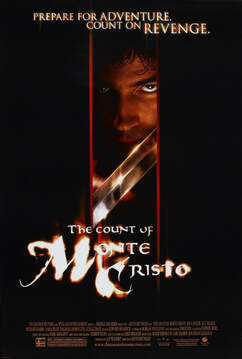
Faria: God said, “Vengeance is mine”.
Edmond: I don’t believe in God.
Faria: It doesn’t matter. God believes in you.
In September 2017, I witnessed a narrow victory in a poll which was
supposed to help decide what to screen at a faith & film discussion group.
For the record, The Count of Monte Cristo won fair and square - and yet,
there was a revolt. The youth of my church demanded a re-vote, but I
wouldn’t budge, and they vowed not to turn up on the night of the film.
For some reason, they not only turned up, but came in their droves –
albeit resentfully, which they kindly informed me of. What followed was
the unruliest film screening I’ve ever attended. And yet, I couldn’t help but
grin from ear to ear, as each of the young people were audibly reacting,
in earnest, to the shocking twists and turns of this modern classic.
Their unexpected love for the film led to a rich Bible-based discussion –
my recent recollection of which has prompted me to highlight and
recommend this underappreciated film, once more.
follows the trials and tribulations of Edmond Dantes (Jim Caviezel), a French sailor who is falsely accused of treason by his best friend Fernand Mondego (Guy Pearce), in a ploy to take everything from Edmond for himself – including his beautiful fiancée Mercedes (Dagmara Dominczyk). Tragically, Edmond is subsequently sentenced to imprisonment within the island prison of Château d'If, and despite initially placing his hope and trust in God to sustain him throughout his imprisonment, Edmond’s faith crumbles. By chance, however, Edmond befriends a fellow inmate – Faria (Richard Harris), who is not only a Christian, but pledges to help Edmond rekindle his relationship with God and escape the island, with a view to leading him to buried treasure through which he will have the means to reinvent himself, as the Count of Monte Cristo. Burning with anger in his heart and desperate for justice (or is it just bitter revenge?), Edmond sets out to see Fernand and others, receive their just deserts.
There’s something undeniably cathartic about watching such a thrilling tale, in which an innocent man sets out to right a terrible wrong and succeeds in doing so. In a world as broken as ours, in which justice doesn’t always seem to prevail, or come when we need it to most, seeing Edmond force those who wronged him to face the consequences for their actions, is hard not to root for. Without question, Edmond is correct to seek justice as a result of his wrongful imprisonment, and for the subsequent pain and anguish he experienced throughout that time. And yet, this representation of the pursuit of justice is arguably problematic. For upon Edmond’s return to Marseille, he wastes no time in using his newfound wealth to deceptively create the character of "The Count of Monte Cristo", thereby establishing himself within the Parisian high society. From there, he furiously plots and schemes to ensure that those who conspired against him, will be caught in the act of their many ongoing sins and receive their downfall. All of this is achieved coldly, in that Edmond specifically tries to ensnare his enemies, rather than use the legal system of his day to receive satisfaction, for example. A once warm, loving and caring individual comes close to being someone he’s not, as his anger and desire for revenge at any cost, threatens to overtake his passion for true justice.
How do we know this? Well, to do wrong in God’s eyes is to actively sin against Him and choose to side with evil, over the goodness that comes as a result of His holiness. When we choose to do what God doesn’t want us to do, we distance ourself from God and offend Him. But the Bible actually teaches that “everyone has sinned” at some point in their life and has done wrong in God’s sight. “We (have) all fall(en) short of God’s glorious standard” (Romans 3:23, NLT) and have committed offences against God, for which we must pay restitution. God demands justice for those offences, but the “payment for sin is death” (Romans 6:23, ICB) for all eternity, in accordance with God’s law. Living a sinful life on earth, therefore, means that we will live in separation from God, in Hell, which is the ultimate penalty. But there is Good News – whilst we have done wrong in God’s sight, God sent His Son, Jesus Christ, to earth, to pay that penalty for us when He died on the Cross and rose again three days later:
Challenge:
Why not prayerfully invite a friend or family member who doesn’t yet know Jesus, to watch The Count of Monte Cristo for themselves? Use the film’s themes to ask them what they thought of the film, if they spotted any links to Christianity and what they might think of the Gospel’s response to this subject.
If you feel able to, ask them what they think about Edmond’s difficult decision not to take lives in his pursuit of justice and grant his enemies mercy? What do they think about God wanting to do the same, in choosing not to leave us to die for all eternity as a result of our offences, but sending His One and only Son as a sacrifice, so that we might be saved? Later, if they're open to hearing it, take an opportunity to share the hope of the Gospel message with them.
Prior to watching the film for yourself, however, take a moment to pray that God would speak to you through the film. If you feel comfortable, pray this prayer over all of your future, film-watching experiences:
Dear Lord, As I watch this film, I ask that you would be present here with me. Highlight to me anything within it that is honourable, anything that can be used in conversation for your Kingdom purposes. Amen.
The Count of Monte Cristo is available to rent through Amazon Prime Video and YouTube

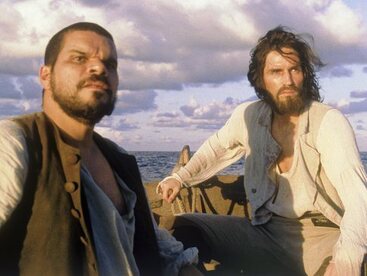
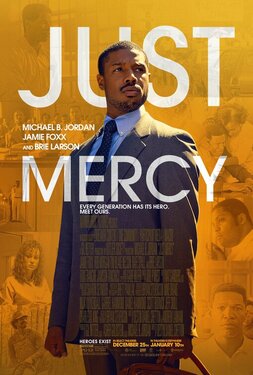
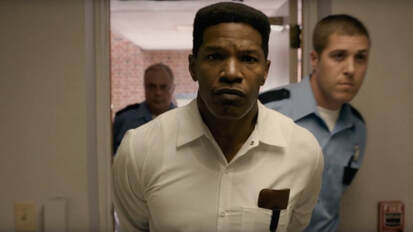




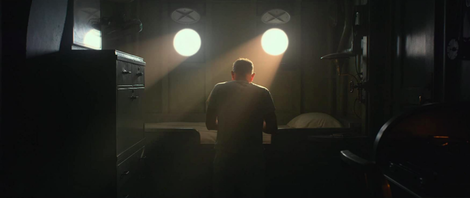
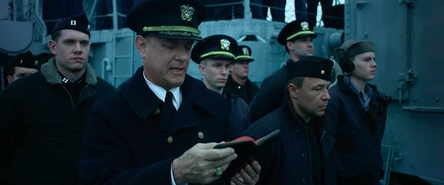
 RSS Feed
RSS Feed